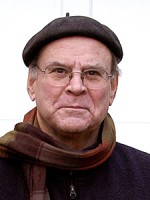Column Name
Title
The Juilliard community and the music profession at large lost a great composer, colleague, and friend with the death of Bruce MacCombie on May 2. Bruce was dean of Juilliard from 1986 to 1992, and during that time he played an important role in shaping new curricular directions, developing many performance initiatives, and helping to plan Juilliard’s first residence hall, which opened in 1990.
Body
Bruce was also my close personal friend. Together we luxuriated in the exceptional talent and dedication of the School’s faculty and students, and particularly relished the unexpected joys and challenges of helping to lead a great performing arts school. His entire career was dedicated to the creation of music, the teaching of composers and performers, and the administration of important educational and music publishing institutions.
Bruce studied composition with Philip Bezanson at the University of Massachusetts, Amherst, and received his doctorate from the University of Iowa. He was deeply influenced by Wolfgang Fortner during his studies at the Freiburg Conservatory. His fluency in German and his sensitivity to the post- World War II German aesthetic allowed him to develop a compositional style that was both innovative and engaging. He also had time in the early 1960s to play piano in the blues band Taj Mahal and the Electras. In later years Bruce’s distinctive blues style on the piano was often enjoyed by his friends at social gatherings.
I met Bruce in the mid-1970s, when he joined the Yale School of Music faculty, and I was a junior administrator. He would quietly chide me for scheduling his music fundamentals class at 8:30 in the morning through a typical low-key sense of humor that always promised several layers of interpretation and mirth. It was during his tenure as director of publications for G. Schirmer and Associated Music Publishers that, at the suggestion of our mutual friend William Schuman, I invited Bruce to become Juilliard’s dean in 1986.
Bruce was a great dean and he developed many longstanding friendships with the faculty and staff. We established a tradition of having lunch together every Monday at John’s Coffee Shop at Broadway and 66th Street, where Century 21 is now located. There we’d bump into a vast array of personalities, from Jerome Robbins to John F. Kennedy Jr. During baseball season, we were invited to the Mets opening day game by Juilliard trustee Thornton Wilson, a member of the renowned Astor family, who would always attend in a suit and tie.
Bruce went on to become dean of the School for the Arts at Boston University, and in 2002, he returned to UMass Amherst, where he was associate dean of and then a professor at the College of Humanities and Fine Arts. During that period, Juilliard commissioned him to compose an orchestral work that was premiered by the Juilliard Orchestra, with James De-Preist conducting, in the winter of 2009. Entitled Samsara Rounds, it is a serene and highly introspective work that presented all the orchestral colors that Bruce was so expert in creating. For anyone who knew of his long battle with cancer, it was also a deeply touching experience to see how Bruce was addressing his own mortality in a characteristically dignified, graceful, and quiet way.
In the last few years of Bruce’s life, a cycle of telephone conversations evolved between him, myself, and Ken Davidson, a Juilliard trustee who had also met Bruce through Bill Schuman as well as through Ken’s wife, Marya. These calls contained both joyful and sad moments as jokes were shared, family issues discussed, and scans and surgeries explained.
In April of this year, Bruce and his wife, Turi, invited the Davidsons and my wife and me to a luncheon at their home in Amherst. Although Bruce was physically diminished by his disease, he was able to sit with us, tell favorite stories, and share special memories. All of the wit, intelligence, and humanity that he embodied were on display that afternoon as his indomitable spirit tried to overcome the ravages of a devastating illness.
Bruce died only 10 days after our luncheon. He was 69 years old. The feelings connected to the passing of a good friend are difficult to describe. Suffice it to say that Bruce MacCombie enriched those who knew him through his musical voice and through a caring and graceful persona that made us all better people





